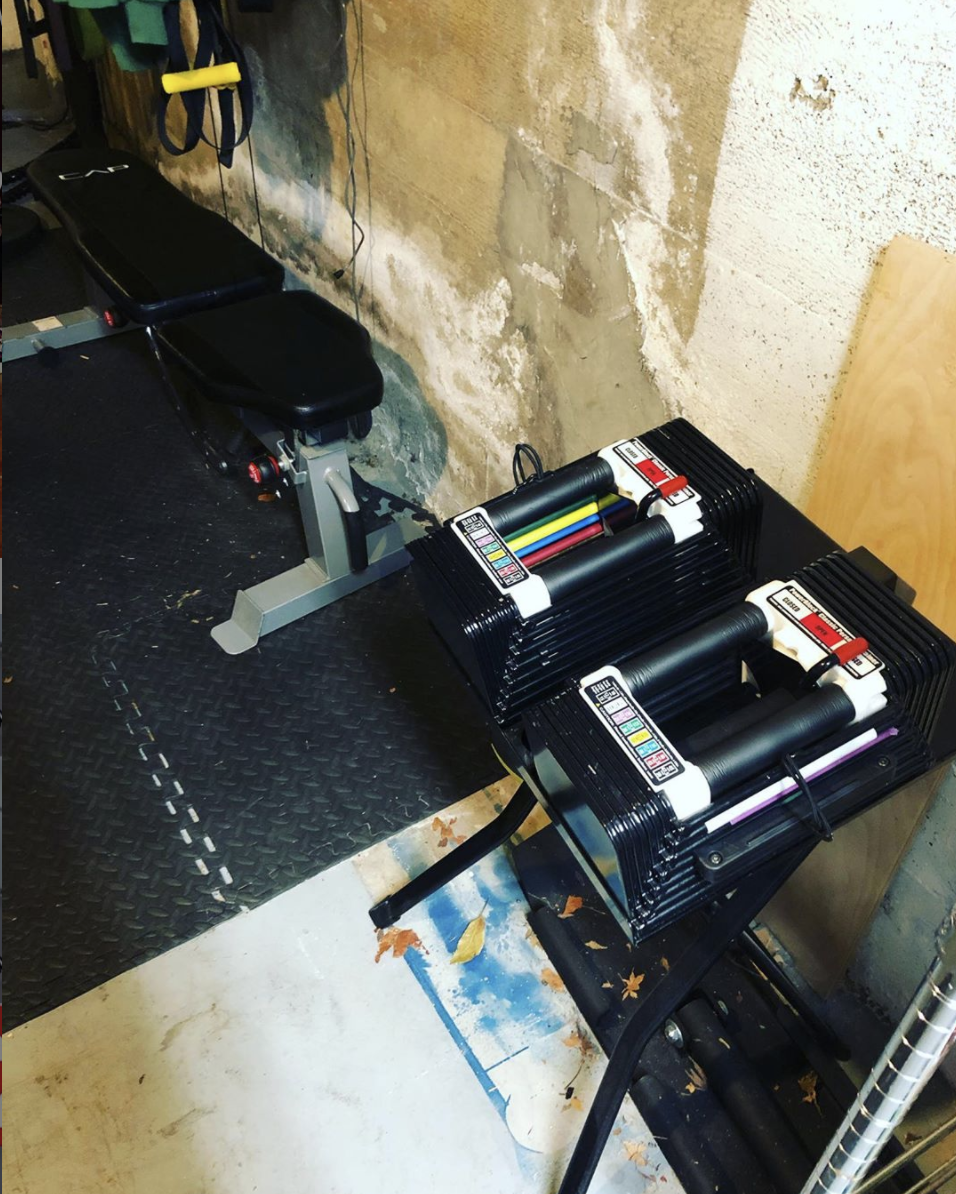
If you follow me on Instagram, you know that I got a fitness tracker for Christmas.
I’m usually very ANTI fitness tracker. Mostly because I don’t want a fitness tracker making me feel guilty about my movement (or lack thereof). Or vibrating at me to walk. Or just generally making me more obsessive about what my body is doing.
However, the Whoop tracker made me curious. (I’m not linking it here because I’m not to the recommendation stage, yet, but it’s easy to find on the interwebs.) It’s billed as a tracker that can monitor your workload and tell you when you should rest and recover (or train less intensely).
If you follow me here, you know I’m a HUGE proponent of rest and recovery. And I also know that learning WHEN to rest and spend time on recovery is difficult. Ultimately, I want people to be able to read their own body signals to determine whether or not they should rest. But, as you learn how, maybe technology can help.
The tracker plays into today’s answer because its whole job is to provide you feedback each morning about how much cardiovascular strain your body can handle by monitor your strain throughout the day. It’s based off of your HRV (which stands for Heart Rate Variability). Your HRV is essentially a measure of the time between heartbeats. The lower your HRV, the more likely you are to be under high amounts of stress — and experiencing something akin to fight/flight/freeze — while a larger variability in between your heartbeats means your less stress and more capable of high levels of performance.
Here’s what the Harvard Health Blog has to say about it:
HRV is simply a measure of the variation in time between each heartbeat. This variation is controlled by a primitive part of the nervous system called the autonomic nervous system (ANS). It works regardless of our desire and regulates, among other things, our heart rate, blood pressure, breathing, and digestion. The ANS is subdivided into two large components, the sympathetic and the parasympathetic nervous system, also known as the fight-or-flight mechanism and the relaxation response.
The brain is constantly processing information in a region called the hypothalamus. The hypothalamus, through the ANS, sends signals to the rest of the body either to stimulate or to relax different functions. It responds not only to a poor night of sleep, or that sour interaction with your boss, but also to the exciting news that you got engaged, or to that delicious healthy meal you had for lunch. Our body handles all kinds of stimuli and life goes on. However, if we have persistent instigators such as stress, poor sleep, unhealthy diet, dysfunctional relationships, isolation or solitude, and lack of exercise, this balance may be disrupted, and your fight-or-flight response can shift into overdrive.
So our HRV acts as something of a stress monitor. The more stress you’re under day-to-day and the less stress management you do, the more likely you are to need additional recovery from ALL KINDS OF STRESS including the physical stress of training and skating. With this in mind, let’s look at today’s training question:
If I do a workout in the morning, “rest” (mainly sitting in front of a computer with lots of food + snacks) all day, and then have a taxing derby practice in the evening, will the benefits from my workouts be smaller than if I had had a night’s sleep between the workout and the derby practice?
Based on what we just learned about HRV, I want you to picture a scenario:
Each morning, when you wake up, you’re given a basket of kittens. (Don’t worry. These are sweet lovely kittens that magically feed, water, and clean up after themselves. They really just sit in the basket and purr and let you pet them and offer snuggles when needed. If you’re allergic to cats, you can instead have a basket of puppies or whatever animal strikes your fancy.)
Some days, when you haven’t slept very well or your body has been super stressed, you only have a few kittens in the basket. Some days, if you’ve been taking care of your foundation (sleeping, eating, stress management), your basket is overflowing with kittens. Most days, it’s somewhere in between.
During the course of the day, every time you do something stressful, you have to give up a kitten. And I’m not just talking about physical stress either. Stressors could be:
- physical exercise like the gym or skating
- getting stuck in traffic
- not eating when you’re hungry because you’re in a meeting or you’re on a diet
- walking into a surprise party for yourself
- getting a promotion
Stress isn’t always bad. But stress is stress. And when your heart gets going and your adrenaline is pumping, whether it’s because you’re being chased by tiger or having fantastic sex, your body can’t always tell the difference. (Although, yes, fantastic sex releases some amazing chemicals into your brain afterward that getting chased by a predatory cat does not.)
In going back to the question above, hopefully you can see where this is heading, If you’re giving away a few kittens at the beginning of the day — #becausegym — but not many kittens throughout the day — #becausejob — then you’re likely going to have kittens left over for something taxing at the end of the day — #becausederby.
This is a very simplistic way of looking at it because there are other considerations, of course. Like if you did a super heavy leg day, then you might not perform the way you want to at practice because most of the muscle repair from the gym will happen over your next 1-2 sleep cycles. But just because you are doing TWO physically taxing things throughout the day doesn’t mean your body won’t reap the benefits of them both.
It’s less about whether or not your body will adapt to the workout you did in the morning and more about how your body can perform after being stressed already. You did the workout and your body will adapt to the demands you put on it (during your sleep).
I guess, long answer short. Or TL;DR:
You will reap the benefits of your workout as long as you are getting appropriate sleep at night to recover for (all) the stresses of your day. However, working out in the morning CAN mean that your performance might dip in a practice that same night. It’s also important to remember that if you ask your body to do this a lot, you’ll find that you wake up with fewer and fewer kittens each day.
Bodies are different and weird and adapt to different types of training in ways we can’t always predict. And training stress doesn’t exist in a vacuum. AS LONG AS YOU ARE TAKING CARE OF YOUR FOUNDATIONAL PIECES (imagine I’m yelling this because it’s very important) then your body will continue to adapt to any training stress you put on it. Whether it’s on skates, in the gym, or in that traffic jam.
Want More?
Come talk about sleep, rest, energy management, and taking care of your foundation in April’s Hot Tub Talk. A community forum to talk about the things that are important to success as a roller derby athlete and a person.

